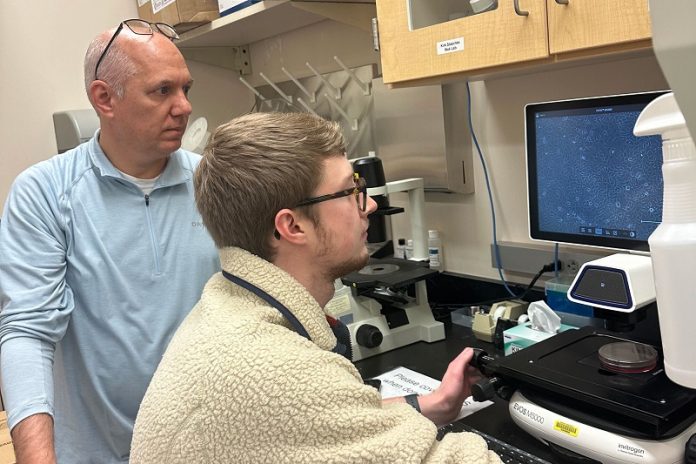
Scientists at Indiana University School of Medicine have discovered a new way to attack prostate cancer by cutting off its supply of essential nutrients.
Their groundbreaking research, published in Science Signaling, reveals how targeting certain proteins in cancer cells can slow tumor growth and potentially lead to more effective treatments for one of the deadliest cancers in men.
Prostate cancer is a leading cause of cancer-related deaths among men in the United States.
Current treatments focus on blocking testosterone, a hormone that prostate cancer cells need to grow.
Unfortunately, tumors often become resistant to these therapies, leaving patients with fewer options.
The new research offers hope by identifying a different approach: starving the cancer cells of amino acids, which are critical nutrients for their survival and rapid growth.
The research team, led by Dr. Kirk Staschke and Dr. Ronald C. Wek, explored how prostate cancer cells respond when deprived of amino acids.
Normally, when nutrients are low, a protein called GCN2 kicks in, helping the cells produce more fuel to keep growing. The researchers hypothesized that blocking GCN2 would weaken the cancer cells.
While inhibiting GCN2 did slow tumor growth, it didn’t kill the cancer cells completely. The team then uncovered the cancer’s “Plan B”: a protein called p53. In prostate cancer, p53 remains functional (unlike in many other cancers) and helps the cells survive by restricting cell division and gathering nutrients.
By targeting both GCN2 and p53, the researchers found they could effectively destroy prostate cancer cells. This dual approach exploits unique vulnerabilities in prostate cancer’s metabolism, cutting off its ability to adapt and survive.
This discovery provides a fresh avenue for developing treatments.
While more research is needed, targeting GCN2 and p53 simultaneously could become a powerful strategy to combat prostate cancer, especially in cases where current therapies fail.
Dr. Staschke emphasized the importance of this finding, saying, “Our study reveals a way to starve prostate cancer by exploiting its dependence on essential nutrients. This dual-target approach could be a game-changer.”
The study was a team effort, with contributions from graduate students Ricardo Cordova and Noah Sommers, along with scientists from Rutgers University and the University at Buffalo. The research highlights the potential for collaborative science to tackle tough medical challenges.
While still in early stages, this research provides a promising path for new prostate cancer treatments. By understanding how these tumors survive and adapt, scientists are one step closer to finding better ways to fight this deadly disease.
If you care about prostate cancer, please read studies about a natural ally against prostate cancer, and supplements and keto diet can boost immunotherapy for prostate cancer.
For more health information, please see recent studies about how to harness the power of anti-cancer foods and supplements, and low-fat diet may help stop cancer growth.
Source: Indiana University.



